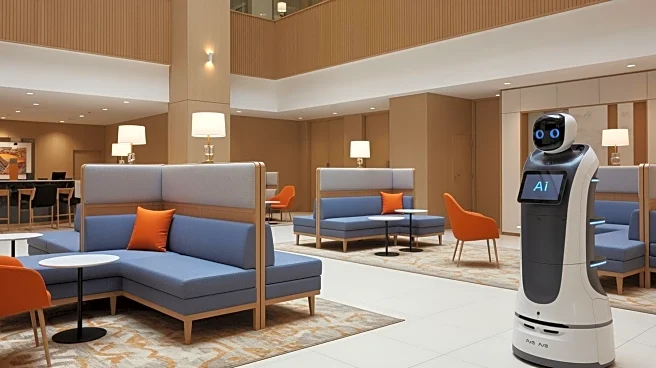What's Happening?
The recent IMEX America 2025 event highlighted significant shifts in the hotel and meeting industries, driven by budget uncertainty, changing buyer expectations, and the rapid rise of AI-driven tools.
Hotels are adapting to these changes by offering pricing flexibility through rate-lock options and multi-currency quotes, allowing clients to plan confidently despite fluctuating exchange rates. The industry is also seeing a trend towards renovation, with many properties undergoing upgrades, which presents both opportunities and challenges such as displaced groups and compressed availability. Additionally, hotel sales teams are adopting proactive business development strategies, utilizing AI-assisted proposal systems and advanced prospecting tools to identify opportunities earlier and personalize outreach. This shift from managing leads to generating them is aimed at building stronger relationships and retaining loyal customers through incentives like rate freezes and extended booking windows.
Why It's Important?
These developments are crucial as they reflect the industry's response to evolving market conditions and technological advancements. The integration of AI and flexible pricing models helps hotels remain competitive in a landscape marked by economic uncertainty and shifting consumer preferences. By focusing on long-term partnerships and leveraging technology, hotels can enhance efficiency, improve client relationships, and drive revenue growth. The emphasis on renovation and technological integration signals optimism for the future, despite short-term challenges. This transformation is likely to impact U.S. hospitality businesses, event planners, and corporate clients, who may benefit from improved transparency, faster decision-making, and more personalized experiences.
What's Next?
As the industry continues to evolve, hotels and planners are expected to further integrate technology into their operations, enhancing collaboration and efficiency. The adoption of end-to-end technology platforms that streamline sales and event processes will likely become more widespread. Hotels may continue to focus on relationship sustainability, prioritizing long-term commitments over short-term gains. The use of AI-driven visuals and interactive proposals could become standard practice, helping clients visualize events and fostering emotional connections. Stakeholders, including hotel sales teams and event planners, will need to adapt quickly to these changes to remain competitive and capitalize on emerging opportunities.
Beyond the Headlines
The shift towards AI and integrated technology platforms in the hotel industry raises ethical and cultural considerations, particularly regarding data privacy and the personalization of client experiences. As technology becomes more embedded in operations, hotels must navigate the balance between automation and human interaction, ensuring that technological advancements enhance rather than detract from the personal touch that is central to hospitality. Additionally, the focus on renovation and sustainability may drive long-term shifts in industry standards, influencing how properties are designed and operated to meet evolving consumer expectations.










